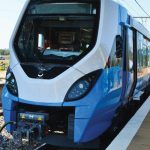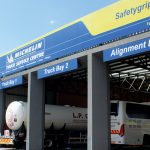Innovation this, innovation that

“There’s no need to reinvent the wheel,” some are often heard saying. In transport, though, the only wheels that don’t need (too much) reinventing are the ones touching the ground
Innovation is an unmistakable buzzword of the 21st century. From boardroom debate to barroom banter, modern-day companies are continually striving for “innovation” in everything they do, every product they create, every service they sell.
“Make changes in something established, especially by introducing new methods, ideas, or products”, is the way innovation is described in the Oxford English Dictionary.
Despite its challenges, the road-transport industry in South Africa is surely more established than it’s ever been. The changes could be happening a little faster, though… We know that if the industry waits for government to take the wheel, it’ll wait for a very long, bureaucratic, red-taped time before anything productive happens. And any transporter will tell you that productivity is what counts most.
It is, therefore, up to the industry to introduce those new methods, ideas and products. Thankfully, the South African transport fraternity is very good at this. Sure, there are those that are happy to continue running their rust buckets with a trusty 30-odd year-old ADE engine (an innovation of necessity in its time) and very little in the way of anything modern or, indeed, innovative. Broadly speaking, however, the local industry can be proud of the way it has engendered innovation.
As the editor of FOCUS, I get to see and hear about these advances on a daily basis.
Vehicle autonomy, alternative propulsion and widespread machine connectivity (or, as it’s more trendily known: the Internet of Things) are all the rage as vehicle manufacturers push engineering boundaries to meet increasingly strict environmental and safety legislation – while bringing hitherto unprecedented levels of efficiency and convenience to transporters.
We’re not talking only trucks, here… For example, the likes of Wabco are developing connected trailer components that create potential for greater monitoring and diagnostics. “Smart” tyres have been developed that keep an eye on their own temperatures and pressures. In the warehouse, Bosch has developed a 360° camera system for forklifts to reduce accidents.
These innovations do not even make up the tip of the iceberg of what’s currently available, and conceivable, as the global transport and logistics industry heads into Industry 4.0. As a traditionally late adopter (thanks to lethargic government legislation), South Africa would seem to be on the back foot. However, there are pockets of innovation excellence in the local industry of which we should be very proud!
You’d have read about the handover of 77 Euro-5 Mercedes-Benz Actros to Bakers Transport in the previous issue. Bakers is but one of numerous South African fleets running high-efficiency vehicles from numerous original equipment manufacturers (OEMs) – many of whom are also enthusiastically researching the viability of alternative fuels and electric vehicles in the local market.
They’ve chosen to do this not because they have to, but because it makes good business sense to do it – because it will set them up for future excellence. It’s innovation in the local context…
In this issue, we feature a trailer from Jost and Cobalt Engineering that’s a first of its kind in South Africa (turn to page 24 to read all about it). It’s locally built to meet a local challenge. Innovation…
Those smart tyres are even available locally through a partnership between Conitental and MiX Telematics. Innovation…
Believe me, there’s even more to come the way of the South African trucking and transport industry – and I look forward to seeing how the wheels of the industry are reinvented as the word “innovation” buzzes it into the future.
Published by
Focus on Transport
focusmagsa




